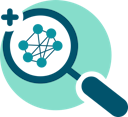Find Your Patient Support Community
Discover support groups and communities where people share experiences, answer questions, and help each other navigate life with your condition.

Why Use Phormulate?
Verified Communities
We vet every organization to ensure you find safe, legitimate support networks and advocacy groups.
Global Reach
Access support groups from around the world, or find local communities near you that speak your language.
Patient-Centric
Built with patients in mind, prioritizing your privacy, ease of use, and meaningful connections.
How It Works
Finding the right support group is simple. We've made it easy for you.
Search Your Condition
Enter your health condition or diagnosis. Our smart search instantly finds relevant support organizations.
Explore Communities
Review detailed profiles of advocacy groups, including their mission, resources, and contact info.
Connect & Get Support
Reach out directly to join communities, access resources, or get involved with groups that feel right for you.
Featured Communities
Browse our curated list of patient advocacy groups and support networks making a difference today.

Acrodysostosis Support and Research
Acrodysostosis Support and Research is a charitable organization that provides educational resources and information about acrodysostosis for both patients and healthcare professionals. The Resources section offers diagnostic and management leaflets for professionals, an accessible What is acrodysostosis? guide in web and medical formats, information on disorders related to acrodysostosis, imagery illustrating distinctive features, and a hub for news, stories, and latest research. The site also links to team, blog, and fundraising content, indicating ongoing community involvement and support for research and awareness.

Action Bladder Cancer UK
Action Bladder Cancer UK (ABC UK) is a charity organization dedicated to raising awareness of bladder cancer, improving early diagnosis, and supporting research and patient support activities. They provide patient stories, educational resources, and support groups. The organization is involved in advocacy, research funding, and clinical trials. They operate primarily in the UK, with a physical address at 6 Trull Farm Buildings, Tetbury, Gloucestershire, GL8 8SQ. The charity was established to address the late detection of bladder cancer and aims to improve survival rates. They have a registered charity number 1164374. The organization engages in policy advocacy, supports patient education, and collaborates with healthcare professionals and researchers. Action Bladder Cancer UK (ABC UK) is a charity organization dedicated to supporting patients with bladder cancer, raising awareness, funding research, and providing educational resources. They operate primarily within the UK, with activities including patient support groups, research grants, educational programs, and advocacy campaigns. The organization is involved in clinical trial support, research collaborations, and policy engagement. They maintain a website with resources for patients and professionals, and have active social media presence on Twitter and Facebook. The charity was established in 2015 and is registered under charity number 1164374. They offer various support services, educational materials, and participate in policy discussions related to bladder cancer.
VHL UK/Ireland
VHL UK / Ireland aims to raise funds via fundraising and donations for research, provide information and support for those affected and raise awareness. Registered charity in England and Wales 1160381, and Ireland 20101039. Charity Trust No: CT54346.

Childhood Interstitial Lung Disease Foundation
The Child Lung Foundation is a charity supporting children affected by childhood Interstitial Lung Disease (chILD). Established in 2010, it provides resources, support groups, and promotes research development. The organization aims to improve diagnosis, treatment, and quality of life for children with chILD, and offers educational resources, patient support services, and advocacy activities. It collaborates with medical professionals, researchers, and patient families to advance understanding and care of rare pediatric lung diseases.

Annabelle's Challenge
Annabelle's Challenge is a charity focused on supporting individuals affected by vascular Ehlers-Danlos syndrome (vEDS). The organization provides support programs, awareness campaigns, research funding, and professional guidance. It aims to improve quality of life for patients and families, promote research and medical understanding, and advocate for better healthcare and support services. The charity also hosts conferences, supports patient stories, and collaborates with NHS services and other professional organizations to advance knowledge and care for vEDS. Annabelle's Challenge is a patient advocacy organization dedicated to supporting individuals with vascular Ehlers-Danlos syndrome (vEDS). It provides resources, support groups, educational materials, and advocacy for patients and families affected by vEDS. The organization aims to improve awareness, facilitate research, and enhance patient care through collaboration with healthcare professionals and the community. It offers a helpline, educational resources, emergency preparedness tools, and opportunities for involvement in research and outreach activities. Annabelle's Challenge also promotes self-advocacy, mental health support, and access to medical information to empower patients in managing their condition.

Mummy's Star
Mummy's Star is a registered charity providing support for women diagnosed with cancer during pregnancy, within 12 months of giving birth, or experiencing baby loss during pregnancy or in the 12 months prior. They offer emotional, financial, practical, and end-of-life support, along with educational resources, advocacy campaigns, and professional support for healthcare providers. The organization also engages in research, policy advocacy, and collaborates with various partners. They operate in the UK and have a broad range of programs and services aimed at supporting patients and families affected by cancer in pregnancy.
The Power of Community
Navigating a health condition is easier when you have the right support. Here's what you can find.
Shared Experiences
Connect with people who truly understand what you're going through. Share your story in a safe, supportive environment.
Practical Information
Get real-world advice about managing your condition, navigating healthcare, and finding resources that actually help.
Emotional Support
Find comfort in a community that cares. Whether you need to vent, celebrate, or just feel heard, we're here.
Advocacy & Awareness
Many groups work to raise awareness, fund research, and improve care. Your voice can make a difference.
Start Your Journey
Take the first step toward connection and support. Search for patient groups that match your needs today.
Start Your Search